Black’s Law Dictionary 1st Edition, page 687-688:
LARCENY. In criminal law. The wrongful and fraudulent taking and carrying away by one person of the mere personal goods of another from any place, with a felonious intent to convert them to his (the taker’s) use, and make them his property, without the consent of the owner. 2 East, P. C. 553; 4 Wash. C. C. 700.
The felonious taking carrying away of the personal goods of another. 4 Bl. Comm. 229. The unlawful taking and carrying away of things personal, with the intent to deprive the right owner of the same. 4 Steph. Comm. 152. The felonious taking of property of another, without his consent and against his will, with intent to convert it to the use of the taker. 2 Leach, 1089.
The taking and removing, by trespass, of personal property which the trespasser knows to belong either generally or specially to another. With the intent to deprive such owner of his ownership therein; and, perhaps it should be added, for the sake of some advantage to the trespasser, -a proposition on which the decisions are not harmonious. 2 Bish. Crim. Law, §§ 757, 758.
Larceny is the taking or personal property, accomplishment by fraud or stealth, and with intent to deprive another thereof. Pen. Code Dak. § 580.
Larceny is the felonious stealing, taking carrying, leading, or driving away the personal property of another. Pen. Code Cal. § 484.
Larceny is sometimes divided into “simple” and “compound” or “mixed” larceny; the former term applying to cases of simple theft; the latter to cases of stealing attended with some recognized circumstances of aggravation, such as larceny from a ship or wharf, or from a dwelling-house in the day-time, or from the person.
Larceny was also divided into “grand” and “petit” larceny, the distinction turning on an arbitrary division of the value of the goods stolen. This division is now abolished in England (7 ¶ 8 Geo. IV. c. 29, ™ 2) and in many of the United Stated, but still subsists in some jurisdictions.
For the distinction between “larceny” and “burglary.” “extortion,” “false pretenses,” and “robbery,” see those titles.
LARCENY BY BAILEE. In Pennsylvania law. The crime of larceny committed where “any person, being a bailee of any property, shall fraudulently take or convert the same to his own use, or to the use of any other person except the owner thereof, although he shall not break bulk or otherwise determine the bailment.” Brightly’s Purd. Dig. p. 436, § 177.
Black’s Law Dictionary 4th Edition, page 1023-1024:
LARCENY. Felonious stealing, taking and carry- ing, leading, riding, or driving away another’s personalty, 4 Bl.Comm. 229; People v. Brickey, 346 Ill. 273, 178 N.E. 483, 485; State v. Miller, 170 La. 51, 127 So. 361, 362; with intent to convert it or to deprive owner thereof, Ledbetter v. State, 24 Ala.App. 447, 136 So. 430; Globe & Rutgers Fire Ins. Co. v. House, 163 Tenn. 585, 45 S.W.2d 55, 56; Commonwealth v. Estes, 265 Ky. 186, 96 S.W. 2d 578, 580.
Larceny is fraudulent taking and carrying away of a thing without claim of right, with intention of converting it to a use other than that of the owner, without his con- sent. Thomas v. Kessler, 334 Pa. 7, 5 A.2d 187, 188; Fitch v. State, 135 Fla. 361, 185 So. 435, 437, 439, 440, 125 A.L.R. 360; Hanes Funeral Home v. Dixie Fire Ins. Co., 216 N: C. 562, 5 S.E.2d 820, 821, 822; receiving possession of personalty with intent to convert it to own use, and with intent of person parting with It to part merely with his posses- sion, Hagan v. State, 76 Okl. Cr. 127, 134 P.2d 1042, 1047, 1048, 1050; taking and removing, by trespass, of personal property which trespasser knows to belong either general- ly or specially to another, with intent to deprive him of his ownership, State v. Broom, 135 Or. 641, 297 P. 340, 342; State v. Levy, 113 Vt. 459, 35 A.2d 853, 854, and, perhaps it should be added, for the sake of some advantage to the trespasser,-a proposition on which the decisions are not harmonious, .2 Bish.Crim.Law, §§ 757, 758; taking of personalty by fraud or stealth, and with intent to deprive an- other thereof, Pen. Code Dak. § 580 (Comp.Laws N.D. 1913, §9913 Rev. Code S.D.1919, § 4210); Hughes v. State, 61 Okl. Cr. 40, 65 P.2d 544, 546; Bussart v. State, 128 Fla. 891, 176 So. 32, 33; unlawful acquisition of property with intent to convert to taker’s use and appropriation by taker, State v. Smith, 2 Wash.2d 118, 98 P.2d 647, 648, 649; un- lawful or felonious taking and carrying away of things personal with intent to deprive rightful owner of it, 4 Steph.Comm. 152; Globe & Rutgers Fire Ins. Co. v. House, 163 Tenn. 585, 45 S.W.2d 55, 56; Bowling v. Hamblen County Motor Co., 16 Tenn.App. 52, 66 S.W.2d 229; wrong- ful and fraudulent taking and carrying away by one of personal goods of another with felonious intent to convert them to his own use and make them his own property, or to deprive the owner permanently of his property, without owner’s consent, Commonwealth v. Estes, 265 Ky. 186, 96 S.W.2d 578. 580; State v. Savage. Del.. 7 W. W. Harr. 509, 188 A. 738, 739; State v. Delk, 212 N.C. 631, 194 S.E. 94; Hickman v. State, 25 Ala.App. 279, 145 So. 167, 168; wrongful or felonious taking property of another, without his consent and against his will, with intent to convert it to use of the taker, Hammon’s Case, 2 Leach, 1089, State v. Boswell, 195 N.C. 496, 142 S.E. 583, 584; State v. Fulks,
114 W.Va. 785, 173 S.E. 888, 889.
Obtaining possession of property by fraud, trick or de- vice with preconceived design or intent to appropriate, convert or steal is “larceny.” John v. United States, 65 App.D.C. 11, 79 F.2d 136, People v. Cook, 10 Cal.App.2d 54, 51 P.2d 169. 170; State v. Wisman, 111 W.Va. 183, 161 S.E. 437, 438; Nugent v. Union Automobile Ins. Co., 140
Or. 61, 13 P.2d 343, 344.
Common-law distinctions between obtaining money under false pretenses, embezzlement, and larceny no longer exist in New York, but all such crimes are embraced within definition of “larceny.” People v. Krumme, 161 Misc. 278, 292 N.Y.S. 657, 660.
Generally, one who unlawfully takes another’s personal property, not intending to steal, and afterwards converts it, intending to steal, is guilty of “larceny”. Calhoun v. State, 191 Miss. 82, 2 So.2d 802, 804, 805.
Every act of thief in the removal of property is in it- self a complete “larceny”. Schultz v. Lainson, 234 Iowa 606, 13 N.W.2d 326, 327, 156 A.L.R. 858.
Common Law Larceny
Felonious taking and carrying away of personal goods of another, Fowler v. Firth, 163 Misc. 942, 298 N.Y.S. 723, 726, with intent to convert it to taker’s use. United States Fidelity & Guaranty Co. v. Peoples Bank & Trust Co. of Westfield, C.C.A.N.J., 79 F.2d 642, 644.
It is obtaining possession of another’s property by fraudulent trick or device, with intent to convert it to own use. Powers v. State, 31 Ala.App. 614, 21 So.2d 282, 285; removal of personalty which trespasser knows to belong to another, with felonious intent to deprive him of his ownership, U. S. v. Patton, C.C.A.Pa., 120 F.2d 73, 75, 76; Austin v. State, 65 Ga.App. 733, 16 S.E.2d 497, 499; taking and carrying away personal property of another without his consent, feloniously, with intent to deprive owner of his property permanently, and to convert it to use of taker, or of some person other than the owner, Fowler v. Firth, 163 Misc. 942, 298 N.Y.S. 723, 72Q; trespassory taking and asportation, Crabb v. Zerbst, C.C.A.Ga., 99 F.2d 562, 564; unpermitted obtaining of possession of another’s chattel and removal thereof, Crabb v. Zerbst, C.C.A.Ga., 99 F.2d 562, 564; wrongful or fraudulent taking and carrying away of the personal goods of another with felonious intent to convert them to the taker’s own use and make them his own property without owner’s consent. Riley v. State, 64 Okl.Cr. 183, 78 P.2d 712, 715, 716; Hatfield v. Guay, C.C.A. N.H., 87 F.2d 358, 363; Fowler v. Firth, 163 Misc. 942, 298 N.Y.S. 723, 726.
Compound Larceny
Larceny or theft accomplished ny taking the thing stolen either from one’s person or from his house; otherwise called “mixed” larceny, and distinguished from “simple” or “plain” larceny, in which the theft is not aggravated by such an intrusion either upon the person or the dwelling. Anderson v. Winfree, 85 Ky. 597, 4 S.W. 351; State v. Chambers, 22 W.Va. 786, 46 Am.Rep. 550.
Constructive Larceny
One where the felonious intent to appropriate the goods to his own use, at the time of the asportation, is made out by construction from the defendant’s conduct, although, originally, the taking was not apparently felonious. 2 East, P.C. 685; 1 Leach, 212
False Pretense and Larceny Distinguished See False Pretenses.
Grand Larceny
In criminal law. In England, simple larceny, was originally divided into two sorts,—grand larceny, where the value of the goods stolen was above twelve pence, and petit larceny, where their value was equal to or below that sum. 4 Bl. Comm. 229.
The distinction was abolished in England by St. 7 & Geo. IV. c. 29, and is not generally recognized in the United States, although in a few states there is a statutory offense of grand larceny, one essential element of which is the value of the goods stolen, which value varies. See State v. Bean, 74 Vt. 111, 52 A. 269; People v. Murray, 8 Cal. 520; State v. Kennedy, 88 Mo. 343.
In Pennsylvania law. The crime of larceny committed where any person, being a bailee of any property, shall fraudulently take or convert the same to his own use, or to the use of any other person except the owner thereof, although he shall not break bulk or otherwise determine the bailment. Brightly’s Purd. Dig. p. 436, § 177 (18 P.S. § 4816). And see Welsh v. People, 17 Ill. 339; State v. Skinner, 29 Or. 599, 46 P. 368.
Act of taking property from the person by merely lifting it from the person or pocket. State v. Stanton, Mo., 68 S.W.2d 811, 812.
Larceny committed where the property stolen is on the person or in the immediate charge or custody of the per- son from whom the theft is made, but without such circumstances of force or violence as would constitute robbery, including pocket-picking and such crimes. Williams v. U. S., 3 App.D.C. 345; State v. Eno, 8 Minn. 220, Gil. 190.
Mixed Larceny
Otherwise called “compound” or “complicated larceny;” that which is attended with circumstances of aggravation or violence to the person,
or taking from a house.
Petit Larceny
The larceny of things whose value was below a certain arbitrary standard, at common law twelve pence. See Ex parte Bell, 19 Fla. 612; Barnhart v. State, 154 Ind. 177, 56 N.E. 212; Peo- ple v. Righetti, 66 Cal. 184, 4 P. 1185,
Simple Larceny
Felonious or wrongful taking and carrying away of personal goods of another. People v. Pace, 2 Cal.App.2d 464, 38 P.2d 202, 203. With intent to steal, Belmas v. State, 15 Ga.App. 288, 82 S.E. 819,
unattended by acts of violence.
Larceny which is not complicated or aggravated with acts of violence. Larceny from the person, or with force and violence, is called “compound” larceny. See State v. Chambers, 22 W.Va. 786, 46 Am.Rep. 550; Anderson v. Winfree, 4 S.W. 351, 85 Ky. 597.
Black’s Law Dictionary 7th Edition, page 885-886:
larceny (lahr-sa-nee), n. The unlawful taking and carrying away of someone else’s personal property with the intent to deprive the posses sor of it permanently. • Common-law larceny has been broadened by some statutes to include embezzlement and false pretenses, all three of which are often subsumed under the statutory crime of “theft.”
“[T]he distinctions between larceny, embezzlement and false pretenses serve no useful purpose in the criminal law but are useless handicaps from the standpoint of the administration of criminal justice. One solution has been to combine all three in one section of the code under the name of ‘larceny.’ This has one disadvantage, however, because it frequently becomes necessary to add a modifier to make clear whether the reference is to common-law larceny or to statutory larceny.” Rollin M. Perkins & Ronald N. Boyce, Criminal Law 389 (3d ed. 1982).
aggravated larceny. Larceny accompanied by some aggravating factor (as when the theft is from a person).
complicated larceny. See mixed larceny.
compound larceny. See mixed larceny.
constructive larceny. Larceny in which the perpetrator’s felonious intent to appropriate the goods is construed from the defendant’s conduct at the time of asportation, although a felonious intent was not present before that
grand larceny. Larceny of property worth more than a statutory cutoff amount, usu. $100. Cf.petit larceny.
“The English law, as the result of an early statute [the Statute of Westminster I, ch. 15 (1275)], classified this offense [larceny] as either ( 1 ) grand larceny or (2) petit larceny (now frequently written petty larceny), the for mer being a capital offense and the latter punishable by forfeiture of goods and whipping, but not death. Both, as mentioned earlier, were felonies. The offense was grand larceny if the value of the property stolen exceeded twelve pence and petit larceny if it did not. Modern statutes very generally retain this same classification (sometimes without using these labels) but with different penalties and different values set as the dividing line.” Rollin M. Perkins & Ronald N. Boyce, Criminal Law 335 (3d ed. 1982).
larceny by bailee. Larceny committed by a bailee who converts the property to personal use or to the use of a third party.
larceny by extortion. Larceny in which the perpetrator obtains property by threatening to (1) inflict bodily harm on anyone or com mit any other criminal offense, (2) accuse anyone of a criminal offense, (3) expose any secret tending to subject any person to ha tred, contempt, or ridicule, or impair one’s credit or business reputation, ( 4 ) take o r withhold action a s a n official, or cause an official to take or withhold action, (5) bring about or continue a strike, boycott, or other collective unofficial action, if the property is not demanded or received for the benefit of the group in whose interest the actor pur ports to act, (6) testify or provide information or withhold testimony or information with respect to another’s legal claim or defense, or (7) inflict any other harm that would not benefit the actor. Model Penal Code § 223.4. See EXTORTION.
larceny by trick. Larceny in which the taker misleads the rightful possessor, by misrepresentation of fact, into giving up possession of (but not title to) the goods. – Also termed larceny by trick and deception; larceny by trick and device; larceny by fraud and deception. Cf. FALSE PRETENSE S ; cheating by false pre tenses under CHEATING.
larceny from the person. Larceny in which the goods are taken directly from the person, but without violence or intimidation, the victim usu. being unaware of the taking. • Pick pocketing is a typical example. This offense is similar to robbery except that violence or intimidation is not involved. Cf. ROBBERY.
larceny of property lost, mislaid, or de livered by mistake. Larceny in which one obtains control of property the person knows to be lost, mislaid, or delivered by mistake (esp. in the amount of property or identity of recipient) and fails to take reasonable measures to restore the property to the rightful owner. Model Penal Code § 223.5.
mixed larceny. 1 . Larceny accompanied by aggravation or violence to the person. Cf. simple larceny. 2. Larceny involving a taking from a house. – Also termed compound larceny; complicated larceny.
petit larceny. Larceny of property worth less than a statutory cutoff amount, usu. $100. – Also spelled petty larceny. Cf. grand larceny.
simple larceny. Larceny unaccompanied by aggravating factors; larceny of personal goods unattended by an act of violence. Cf. mixed larceny ( 1 ) .
Black’s Law Dictionary 8th Edition, page 2800-2801:
larceny (lahr-s<<schwa>>-nee), n. The unlawful taking and carrying away of someone else’s personal property with the intent to deprive the possessor of it permanently. • Common-law larceny has been broadened by some statutes to include embezzlement and false pretenses, all three of which are often subsumed under the statutory crime of “theft.” [Cases: Larceny 1.C.J.S. Larceny §§ 1(1, 2), 9.]
“The criminal offence of larceny or theft in the Common Law was intimately connected with the civil wrong of trespass. ‘Where there has been no trespass,’ said Lord Coleridge, ‘there can at law common be no larceny.’ Larceny, in other words, is merely a particular kind of trespass to goods which, by virtue of the trespasser’s intent, is converted into a crime. Trespass is a wrong, not to ownership but to possession, and theft, therefore, is not the violation of a person’s right to ownership, but the infringement of his possession, accompanied with a particular criminal intent.” 4 Stephen’s Commentaries on the Laws of England 72–73 (L. Crispin Warmington ed., 21st ed. 1950).
“[T]he distinctions between larceny, embezzlement and false pretenses serve no useful purpose in the criminal law but are useless handicaps from the standpoint of the administration of criminal justice. One solution has been to combine all three in one section of the code under the name of ‘larceny.’ This has one disadvantage, however, because it frequently becomes necessary to add a modifier to make clear whether the reference is to common-law larceny or to statutory larceny.” Rollin M. Perkins & Ronald N. Boyce, Criminal Law 389 (3d ed. 1982).
aggravated larceny.Larceny accompanied by some aggravating factor (as when the theft is from a person). — Also termed compound larceny. [Cases: Larceny 23. C.J.S. Larceny §§ 60(1, 2, 3), 61–65.]
complicated larceny.See mixed larceny.
compound larceny.1. See aggravated larceny. 2. See mixed larceny.
constructive larceny.Larceny in which the perpetrator’s felonious intent to appropriate the goods is construed from the defendant’s conduct at the time of asportation, although a felonious intent was not present before that time.
grand larceny.Larceny of property worth more than a statutory cutoff amount, usu. $100. Cf. petit larceny. [Cases: Larceny 23. C.J.S. Larceny §§ 60(1, 2, 3), 61–65.]
“The English law, as the result of an early statute [the Statute of Westminster I, ch. 15 (1275)], classified this offense [larceny] as either (1) grand larceny or (2) petit larceny (now frequently written petty larceny), the former being a capital offense and the latter punishable by forfeiture of goods and whipping, but not death. Both, as mentioned earlier, were felonies. The offense was grand larceny if the value of the property stolen exceeded twelve pence and petit larceny if it did not. Modern statutes very generally retain this same classification (sometimes without using these labels) but with different penalties and different values set as the dividing line.” Rollin M. Perkins & Ronald N. Boyce, Criminal Law 335 (3d ed. 1982).
larceny by a constructive trespass.Larceny that occurs when a property owner mistakenly gives another person more property than is due, and the recipient knows about the error but does not disclose it before taking the excess property with the intent of converting it to his or her own use.
larceny by bailee.Larceny committed by a bailee who converts the property to personal use or to the use of a third party. [Cases: Embezzlement 16; Larceny 15. C.J.S. Embezzlement § 20; Larceny §§ 30–32, 45–48.]
larceny by extortion.See theft by extortion under THEFT.
larceny by fraud and deception.See larceny by trick.
larceny by trick.Larceny in which the taker misleads the rightful possessor, by misrepresentation of fact, into giving up possession of (but not title to) the goods. — Also termed larceny by trick and deception; larceny by trick and device; larceny by fraud and deception. Cf. FALSE PRETENSES; cheating by false pretenses under CHEATING. [Cases: Larceny 14. C.J.S. Larceny §§ 7, 36, 50.]
larceny from the person.Larceny in which the goods are taken directly from the person, but without violence or intimidation, the victim usu. being unaware of the taking. • Pickpocketing is a typical example. This offense is similar to robbery except that violence or intimidation is not involved. Cf. ROBBERY. [Cases: Larceny 19. C.J.S. Larceny §§ 8, 10–11.]
larceny of property lost, mislaid, or delivered by mistake.See theft of property lost, mislaid, or delivered by mistake under THEFT.
mixed larceny. 1. Larceny accompanied by aggravation or violence to the person. Cf. simple larceny. 2. Larceny involving a taking from a house. — Also termed compound larceny; complicated larceny.
petit larceny.Larceny of property worth less than an amount fixed by statute, usu. $100. — Also spelled petty larceny. Cf. grand larceny. [Cases: Larceny 23. C.J.S. Larceny §§ 60(1, 2, 3), 61–65.]
simple larceny.Larceny unaccompanied by aggravating factors; larceny of personal goods unattended by an act of violence. Cf. mixed larceny (1).



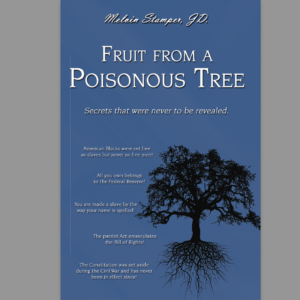
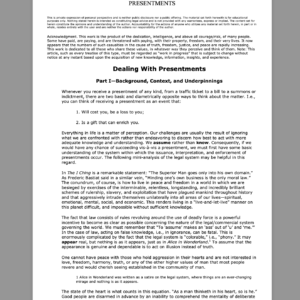
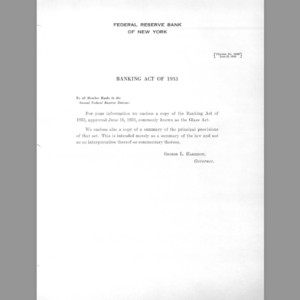
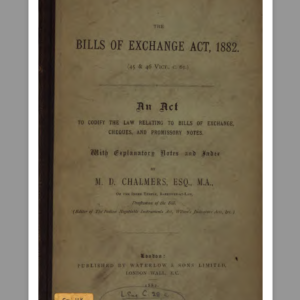
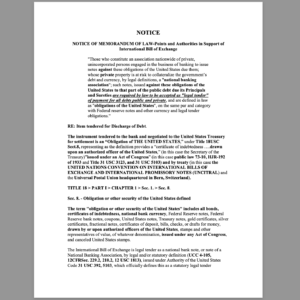
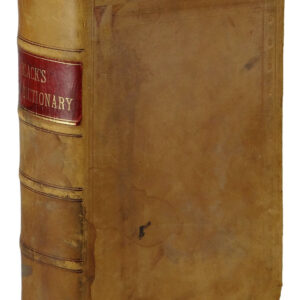



Recent Comments